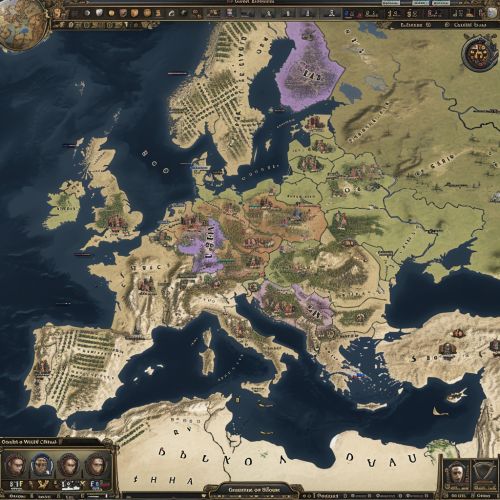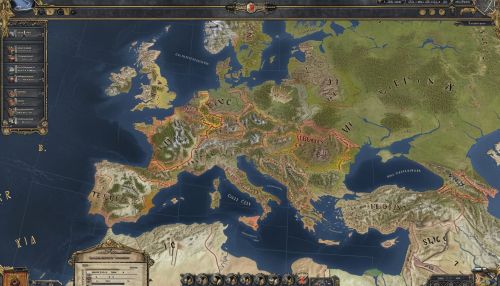Europa Universalis
Overview
Europa Universalis is a series of historical grand strategy games that allows players to control a nation and its politics, economy, diplomacy, and military action from the Late Middle Ages through to the Early modern period. Developed by Paradox Development Studio and published by Paradox Interactive, the series has been praised for its depth and detail in simulating the complexities of this era.


Gameplay
Europa Universalis is a grand strategy game that differs from typical RTS games in that it uses a pausable real-time system, rather than the more common turn-based system. This allows players to play at their own pace, pausing the game to make strategic decisions and then resuming play.
Players control a nation and its various aspects, including politics, economy, diplomacy, and military action. The game is played on a map of the world, with the terrain reflecting the historical geography of the era. The map is divided into provinces, each of which can be controlled by a nation. Provinces are the basic unit of land and provide resources to the nation that controls them.
The game's mechanics are complex and detailed, reflecting the intricacies of the historical period. For example, the economic system involves managing a nation's resources, including gold, manpower, and administrative, diplomatic, and military power. These resources are used to perform various actions, such as building structures, recruiting units, conducting diplomacy, and waging war.
In addition to managing resources, players must also manage their nation's stability and reputation. Stability is a measure of a nation's internal order and can be affected by events such as wars, rebellions, and bankruptcy. Reputation is a measure of a nation's standing with other nations and can be affected by actions such as breaking treaties, declaring war, and aggressive expansion.
Development
The Europa Universalis series was developed by Paradox Development Studio, a Swedish video game developer known for its grand strategy games. The first game in the series, Europa Universalis, was released in 2000 and was based on a French board game of the same name.
The series has since grown to include several sequels and expansions, each adding new features and mechanics to the game. For example, Europa Universalis II, released in 2001, introduced a new religion system, allowing players to control the religious affairs of their nation. Europa Universalis III, released in 2007, added a new system for managing government types and national ideas.
The latest game in the series, Europa Universalis IV, was released in 2013 and has received numerous expansions and updates since its release. It introduced a new trade system, a more detailed diplomatic system, and a more dynamic system for managing provinces and development.
Reception
The Europa Universalis series has been well-received by critics and players alike for its depth and complexity. The games are often praised for their historical accuracy and attention to detail, with many aspects of the game being based on historical events and conditions.
However, the series has also been criticized for its steep learning curve and complexity. The games' mechanics are often described as being difficult to learn and understand, especially for new players. Despite this, the series has a dedicated fan base and has been influential in the grand strategy genre.
